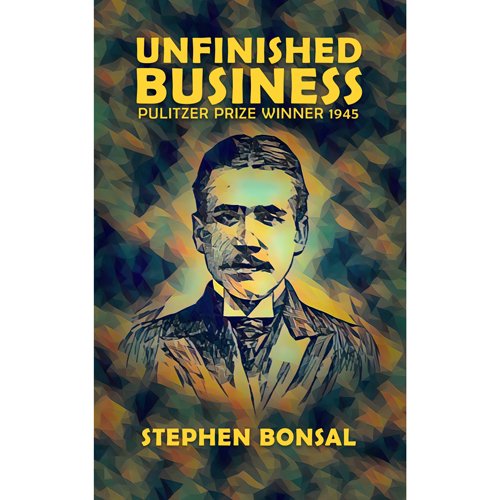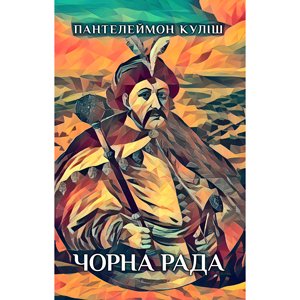
Colonel Bonsal once told me the story of how this diary came to be written.
One winter’s afternoon in Berlin, in 1915, he observed a distressed and bewildered American, a sheet of paper clutched in his hand, trying in vain to get help from passing Germans in finding his way. One after another they ignored him or brushed him aside, and seeing the way open for a good deed, Colonel Bonsai came to the rescue and took charge. He led his compatriot to the one shop in Berlin where English newspapers could still be found, interpreted for him, and left him at the door, never thinking he would see him again, and soon.
On the following day the two men met again, by chance, at the American Embassy. Bonsai was introduced to Colonel House, who hailed him as a good Samaritan. Like most good Samaritans, he was promptly called on for further service. To be exact, he was impressed to act as interpreter in a series of important meetings with German political figures in which Colonel House was engaged. In the course of this association the two men became firm friends, and when the time came to prepare for the Peace Conference Colonel House cabled General Pershing, asking for the services of his former associate, who was at that time an officer at General Headquarters.
Starting as adviser on Balkan affairs, Colonel Bonsai soon became the close associate of Colonel House in all matters bearing upon the peace. He was chosen to sit with President Wilson and Colonel House and interpret for them the proceedings of secret meetings where no stenographic notes were kept and no official translations made.
At the request of President Wilson and Colonel House, he made a daily practice of writing up his notes in the form of a journal, which was freely used for reference in checking the memories of our delegates. Colonel Bonsai jotted down not only the strictly official proceedings, but also a running commentary on the daily happenings in the meetings and the personal and human side of the interchanges.
I remember hearing Colonel House, during the Conference, speak with admiration of the author’s special fitness for his service with President Wilson and for the inquiries he carried out not only in Paris but in Germany and Central Europe, of his knowledge of European and Balkan affairs, and especially of his genius for self-effacement —or what Colonel House called his “low visibility.”
For a long time before and after the turn of the century Colonel Bonsai was probably our most distinguished foreign correspondent. He traveled extensively, following the armies in many wars, some of them with his lifelong friend Richard Harding Davis, with whom he shared various colorful experiences. As an illustration of the extent of territory covered by Bonsai it has been said that first for the Herald of James Gordon Bennett and later for the New York Times he had visited and “surveyed” all the countries of Europe, Africa, and Asia (with the exception of Persia), and all the republics of South America, before the Conference of the Nations assembled in Paris in 1919.
Writers on the subject of the Versailles peacemaking have usually made free with the names of the great, but to Colonel Bonsai most of them were more than mere names. Many were acquaintances or warm personal friends. There were such figures as Clemenceau, Lloyd George, Balfour, Smuts, and Masaryk. Besides being the trusted associate of President Wilson and Colonel House, he was on excellent terms with Senator Lodge and, as his diary shows, might well have bridged the gap between him and the President but for the unfortunate “blackout over Washington” caused by the President’s illness.
This is no story of the peacemaking written in the light of later events; it consists of excerpts from a diary written at the time, without any attempt to cover up mistaken judgments or even to improve literary style. Of all the host of books written about the Versailles Treaty and the drafting of the Covenant of the League of Nations, I do not know of another based on notes taken in the actual meetings and written up day by day. The account constitutes an original source, rather than being compiled from original sources. For that reason it is of genuine historical importance. The author might have made some of his points more effectively by doctoring the original text, but has declined to do so on the ground that this would impair the integrity of his diary.
After World War I Colonel Bonsai was urged to publish his recollections, and on his objection that this might be indiscreet on the part of a professional writer who had been given access to confidential information, President Wilson told him, “You can’t be too indiscreet for me. I give you full absolution in advance.”
Recently his friends, among them Arthur Krock, a severe and discriminating critic, to whom this book is dedicated, sought to convince Colonel Bonsai that it was his duty to publish his notes. He held out against such pleas until it became clear to his informed mind that we were beginning to repeat the same mistakes that led to the tragedy of Versailles. It becomes daily more urgent that we learn to find a safer way amid the old pitfalls, and it is to be hoped that we may profit from Colonel Bonsai’s objective, straightforward story.
Hugh Gibson
New York
To continue reading, please buy the book:

